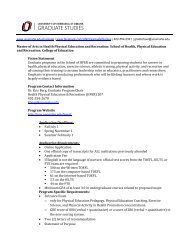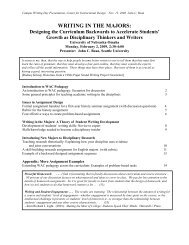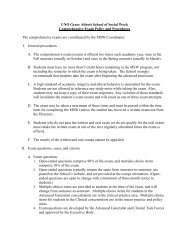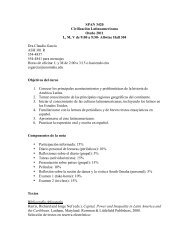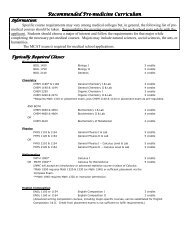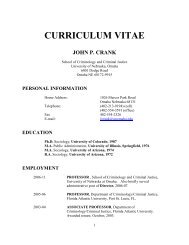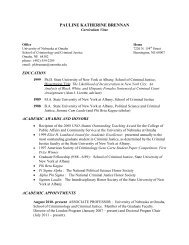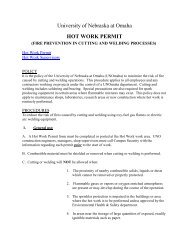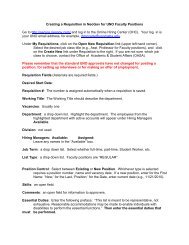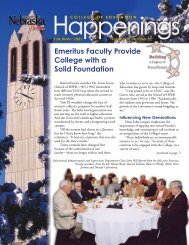Stories of Ambition and Guilt: Five Character Types in Dostoevsky's ...
Stories of Ambition and Guilt: Five Character Types in Dostoevsky's ...
Stories of Ambition and Guilt: Five Character Types in Dostoevsky's ...
You also want an ePaper? Increase the reach of your titles
YUMPU automatically turns print PDFs into web optimized ePapers that Google loves.
4 <br />
for Raskolnikov when Raskolnikov is sick. Pip’s friend, Herbert, undertakes very similar duties<br />
<strong>in</strong> Great Expectations. He st<strong>and</strong>s by Pip’s decisions, even though Pip’s need to establish himself<br />
as a gentleman pressures them both to spend more on luxuries than they can afford. He also takes<br />
care <strong>of</strong> Pip when Pip burns his own arm rescu<strong>in</strong>g someone from a fire. Razumikh<strong>in</strong>’s <strong>and</strong><br />
Herbert’s actions appear almost identical <strong>in</strong> many ways; the difference, which makes these<br />
similarities all the more strange, is <strong>in</strong> their personalities—specifically <strong>in</strong> Razumikh<strong>in</strong>’s hot<br />
temper <strong>and</strong> Herbert’s mildness.<br />
Razumikh<strong>in</strong> is described as “subject to violent fits <strong>of</strong> rage, [with] a reputation for great<br />
physical strength.” 7 He argues with Raskolnikov’s fevered reason<strong>in</strong>g <strong>and</strong>, when Raskolnikov<br />
tries to escape a confrontation, shouts questions <strong>and</strong> <strong>in</strong>sults after him. In fact, whenever<br />
Razumikh<strong>in</strong> gives Raskolnikov advice or tries to help him with his troubles <strong>in</strong> the novel, he is<br />
blunt, brief, <strong>and</strong> <strong>of</strong>ten loud.<br />
Contrast<strong>in</strong>gly, Herbert is diplomatic <strong>and</strong> tactful, never rais<strong>in</strong>g his voice or criticiz<strong>in</strong>g Pip<br />
harshly. He is “wonderfully hopeful” 8 but lack<strong>in</strong>g <strong>in</strong> “natural strength” 9 <strong>and</strong> unlikely to be “very<br />
successful or rich” 10 —nearly the opposite <strong>of</strong> Razumikh<strong>in</strong>, who knows “a thous<strong>and</strong> <strong>and</strong> one ways<br />
<strong>of</strong> mak<strong>in</strong>g money” 11 even if he is currently poor. When Pip needs correction, Herbert treats his<br />
advice like improvement <strong>of</strong> someth<strong>in</strong>g already good, while Razumikh<strong>in</strong> usually emphasizes<br />
Raskolnikov’s faults, at least at first, to get him to change.<br />
The question is, what do these opposite but equally successful methods <strong>of</strong> encouragement<br />
tell us about the k<strong>in</strong>d <strong>of</strong> support Raskolnikov <strong>and</strong> Pip need? Though they are <strong>in</strong> similar positions,<br />
torn by ambition <strong>and</strong> guilt, Raskolnikov values Razumikh<strong>in</strong>’s fierce, berat<strong>in</strong>g manner while Pip<br />
responds well to Herbert’s gentle coax<strong>in</strong>g. One explanation for the success <strong>of</strong> such different<br />
tactics h<strong>in</strong>ges on whether the protagonists, follow<strong>in</strong>g their flawed goals, are primarily runn<strong>in</strong>g




